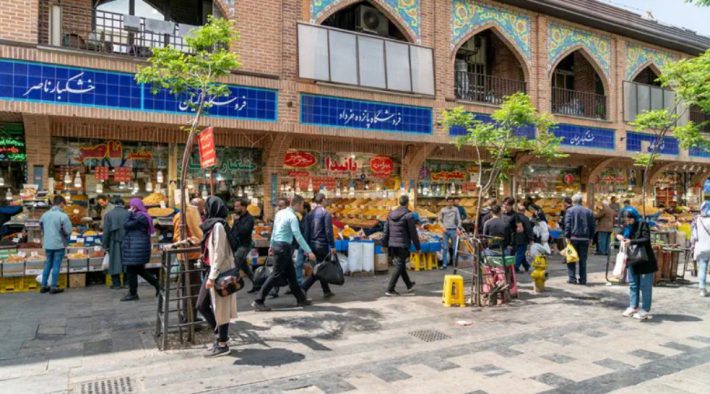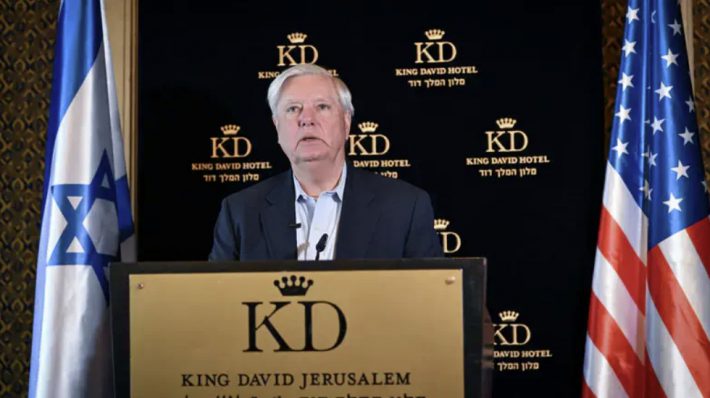France, Germany, and the UK trigger UN snapback sanctions, freezing Iran’s assets, banning arms sales, and choking its missile program—pushing Tehran into deeper economic and diplomatic isolation.
The United Nations has officially reimposed sweeping sanctions on Iran, in a move that isolates the regime further and cripples its nuclear and military ambitions. The sanctions took effect at midnight GMT on Sunday, after France, Germany, and the United Kingdom triggered the snapback mechanism from the 2015 nuclear deal, following failed last-minute efforts by Russia and China to block the measure.
The measures freeze Iranian assets worldwide, ban arms trade with Tehran, and target ballistic missile development, striking at the core of the Islamic Republic’s regional terror operations.
The sanctions come in the wake of June’s 12-day war, during which Israel and the United States struck hard at Iranian nuclear and military facilities, exposing Tehran’s vulnerability. Now, with its currency—the rial—plummeting to record lows and food prices soaring, the regime faces an explosive domestic crisis. Reports from inside Iran reveal ordinary citizens unable to afford basics like rice and meat, fueling mounting anger at the regime’s costly pursuit of nuclear weapons and regional terror.
France, Britain, and Germany, in a joint statement, urged Tehran not to lash out: “The reimposition of UN sanctions is not the end of diplomacy. We urge Iran to refrain from escalation and return to compliance with its safeguards obligations.”
In a fit of anger, Tehran recalled its ambassadors from the three European capitals, calling the snapback “illegitimate.” Yet the fact remains: Iran is now back under the heaviest sanctions ever imposed by the international community—cut off, weakened, and on the defensive.
With Tehran threatening to withdraw from the Nuclear Nonproliferation Treaty—the same path North Korea took before going nuclear—the world braces for the regime’s next move. But one fact is clear: Israel’s warnings about Iran’s threat have been vindicated, and the world is finally taking action.The United Nations has officially reimposed sweeping sanctions on Iran, in a move that isolates the regime further and cripples its nuclear and military ambitions. The sanctions took effect at midnight GMT on Sunday, after France, Germany, and the United Kingdom triggered the snapback mechanism from the 2015 nuclear deal, following failed last-minute efforts by Russia and China to block the measure.
The measures freeze Iranian assets worldwide, ban arms trade with Tehran, and target ballistic missile development, striking at the core of the Islamic Republic’s regional terror operations.
The sanctions come in the wake of June’s 12-day war, during which Israel and the United States struck hard at Iranian nuclear and military facilities, exposing Tehran’s vulnerability. Now, with its currency—the rial—plummeting to record lows and food prices soaring, the regime faces an explosive domestic crisis. Reports from inside Iran reveal ordinary citizens unable to afford basics like rice and meat, fueling mounting anger at the regime’s costly pursuit of nuclear weapons and regional terror.
France, Britain, and Germany, in a joint statement, urged Tehran not to lash out: “The reimposition of UN sanctions is not the end of diplomacy. We urge Iran to refrain from escalation and return to compliance with its safeguards obligations.”
In a fit of anger, Tehran recalled its ambassadors from the three European capitals, calling the snapback “illegitimate.” Yet the fact remains: Iran is now back under the heaviest sanctions ever imposed by the international community—cut off, weakened, and on the defensive.
With Tehran threatening to withdraw from the Nuclear Nonproliferation Treaty—the same path North Korea took before going nuclear—the world braces for the regime’s next move. But one fact is clear: Israel’s warnings about Iran’s threat have been vindicated, and the world is finally taking action.





